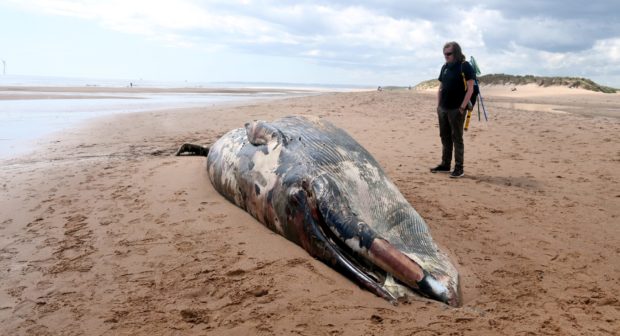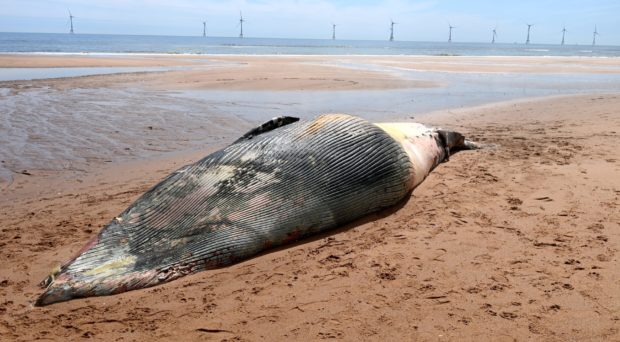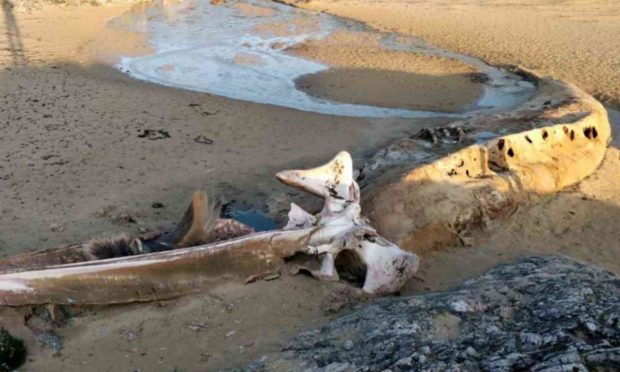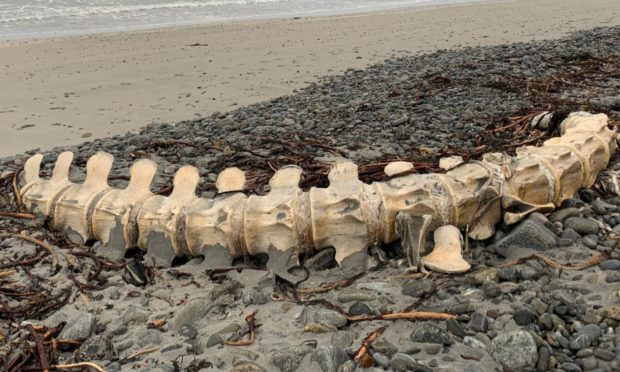A juvenile fin whale has washed up on one of north-east’s most popular beaches.
Dog walkers at Balmedie beach spotted the mammal near the end of the boardwalk at around 9am today.
Experts believe the animal died at sea more than a week ago although the cause of death has not been confirmed.
The finding has been reported to Scottish Marine Animal Strandings Scheme (Smass), who confirmed the origin of the mammal as a juvenile male fin whale.
Stranding coordinator for Smass Nick Davidson explained that although it was an “interesting” report, the remains are too decomposed for further examination.
He said: “Because of the style of preservation and the level of decomposition, there is not much information we can gain from the whale – except confirm its origin and sex.
“If it was fresher we would have certainly examine it to conclude a cause of death, but given the condition of the corpse, there is not much we can do.”
Keeping Scotland’s beaches clean and reporting stranded marine animals
In effort to keep Scotland’s coastlines clean and examine threats facing the country’s sea animals, Smass launched a recording app in July 2019.
The project asks volunteers to install the programme on their phones and note the general cleanliness of the beaches they walk on, and take photos of any deceased whales, dolphins, sharks, turtles or other sea creatures they happen to come across.
Data collected through the app is then used by Smass to build a “health map” of Scotland’s coasts, direct beach cleans, and improve scientific understanding of the health of Scotland’s waters.
Some of the reports so far include the skeleton of a whale found on Colonsay, the decaying remains of a shark in West Kilbride, and the bones of a small whale found near Culbin Forest, just north-east of Forres.
Most recently, a 5ft long juvenile sperm whale was also discovered at Traigh Mhor beach in North Tolsta in March.
A month later, the remains of a giant spine were found on a beach in South Uist in the Western Isles.
Although the size of the finding led to speculation that it could be that of the Loch Ness Monster, marine experts confirmed it to had been a sperm whale that stranded in that area the year before.
Mr Davidson added: “We have around 600 stranded marine animals around the coast of Scotland a year, so it’s not an uncommon find – but these large mammals are slightly more uncommon.
“The most commonly reported animal is the minke whale, which is a sizable population in Scottish waters, with fin whales probably the next most common one.
“We always advise people to report any sightings of stranded animals to Smass, especially if there is any sign of life.”
Anyone who comes across a dead or stranded marine animal is urged to contact Smass on 07979 245 893 or by e-mail on strandings@sruc.ac.uk.



